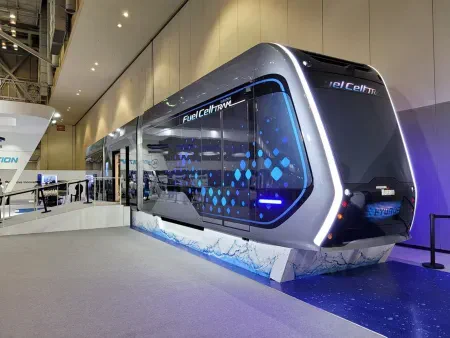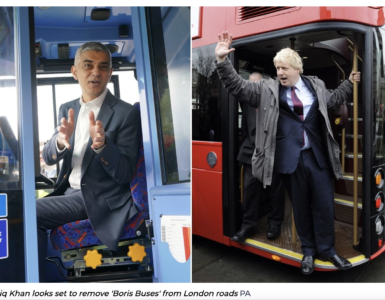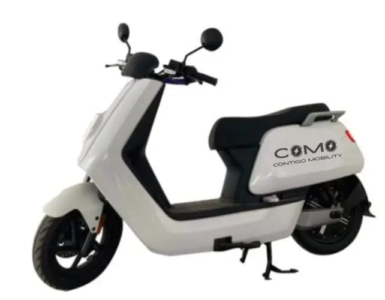TÜV SÜD Korea will participate in the ‘hydrogen-electric tram demonstration project’ implemented by the Ministry of Trade, Industry and Energy (MOTIE) of South Korea, which aims to expand automotive-centred hydrogen mobility to railways and carve out a position on the global environmentally-friendly tram market.
Proactively pioneering on domestic and overseas markets, this project is seeking to build hydrogen fuelling stations for hydrogen trams by 2022 and start mass production of hydrogen trams in 2024.
On 23 September, MOTIE announced the launch of its hydrogen-electric tram demonstration project including investments of KRW 42.4 billion (KRW 28.2 billion from the government) and running to 2023 with the goal of producing commercially viable hydrogen trams.
MOTIE plans to first discuss the application of hydrogen trams with local governments that have new urban railroad projects such as Ulsan and Dongtan, and then to develop overseas markets mainly in regions that have demand for trams such as Europe and Southeast Asia.
🔥 What about we co-host a webinar? Let's educate, captivate, and convert the hydrogen economy!
Hydrogen Central is the global go-to online magazine for the hydrogen economy, we can help you host impactful webinars that become a global reference on your topic and are an evergreen source of leads. Click here to request more details
The goal of this project, which started in September and will run to the end of 2023, is to establish core technologies in four major fields in order to commercialise the hydrogen tram. The rail vehicle has a power output of 380 kW, which is equivalent to four hydrogen fuel cells for the Hyundai NEXO (95kW).
Hyundai Rotem, a company specialising in rail technology, will supervise the integration of the hydrogen tram system and its verification.
Five small and medium-sized railway component manufacturers, including Maxis (motors), Core Chips (sensors), Fullohm KD (brakes), SJ Steel (bodies), and A&M Mecatech (cooling), will also participate in the project to engage in organic cooperation and challenge the hydrogen train field.
They plan to manufacture components, such as motors and brakes, to be installed in hydrogen trams by 2022. In 2023 it intends to integrate these components to build full hydrogen trams and verify their performance.
Korea Automotive Technology Institute (KATECH), which has accumulated experience and know-how in hydrogen car parts remodelling, will supervise the field of hydrogen fuel cell and element component technology for hydrogen trams.
Hydrogen car component specialized businesses and seven institutions, including GMB Korea (fuel cell thermal management), ETIS (fuel cell control), Donghee Industrial (hydrogen storage tanks), Hwaseung R&A (flexible tubes), CS Enertech (battery), Hanyang University and Sogang University (design), will participate in the project.
Korea Railroad Research Institute (KRRI) will supervise the fields of hydrogen tram technology standards and driving performance evaluation technology. Since this is an export-oriented project, TÜV SÜD Korea – a member company of TÜV SÜD Group, world’s leading testing, inspection and certification (TIC) company – is also participating in the project.
The provider of TIC services will closely verify whether the hydrogen-electric tram meets domestic and European railroad safety standards.
Unlike hydrogen cars, hydrogen trams require hydrogen fuel cells and storage tanks to be mounted on the roof to save on passenger space.
Hence, hydrogen fuel cells originally designed for the Hyundai NEXO will be purchased, reduced in height and converted into hydrogen fuel cells to be used in trams by 2022. In addition, the project partners will work on developing components such as flexible high-pressure tubes to connect multiple hydrogen storage tanks installed on the coach roofs.
Ulsan Technopark will supervise the fields of hydrogen tram infrastructure and operation technology.
Four infrastructure, safety and analysis institutions, including Cobiz small business centre (discovery of business models), Bumhan Fuel Cell (construction of hydrogen fuelling stations), Institute of Gas Safety R&D (safety verification of hydrogen fuelling stations), and the University of Ulsan (optimal operation pattern of hydrogen trams), will participate in the project.
A representative from the Ministry of Trade, Industry and Energy (MOTIE) stated,
While we are a world leader in automotive hydrogen technology, our transition to hydrogen in other fields of transport has been proving relatively slow.
“Given this, we anticipate that this project will accelerate the commercialisation of hydrogen throughout all areas of transport.”
READ the latest news shaping the hydrogen market at Hydrogen Central
TÜV SÜD KOREA TO PARTICIPATE IN HYDROGEN-ELECTRIC TRAM PROJECT EXECUTED BY THE MINISTRY OF TRADE, INDUSTRY AND ENERGY, October 12, 2021








